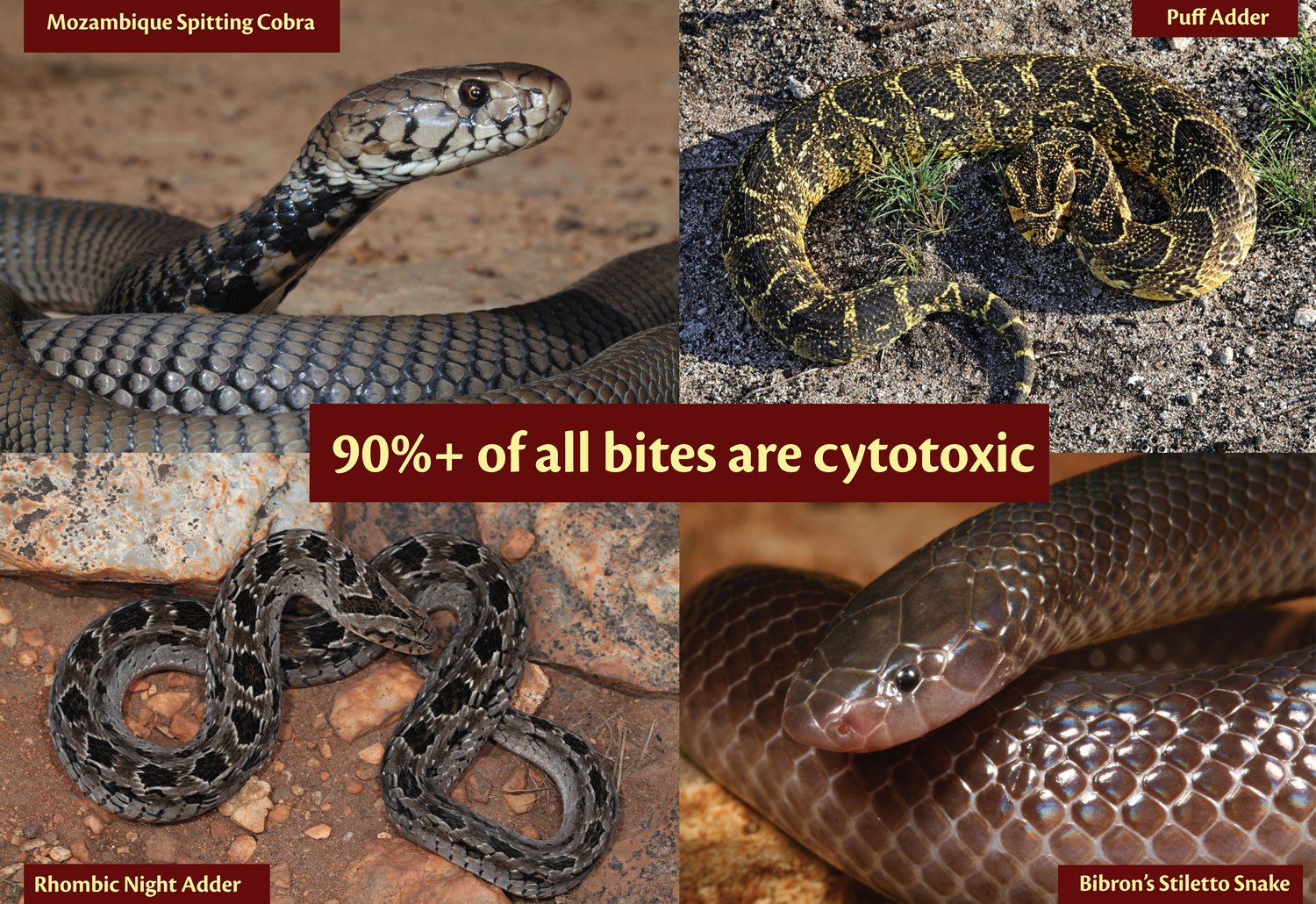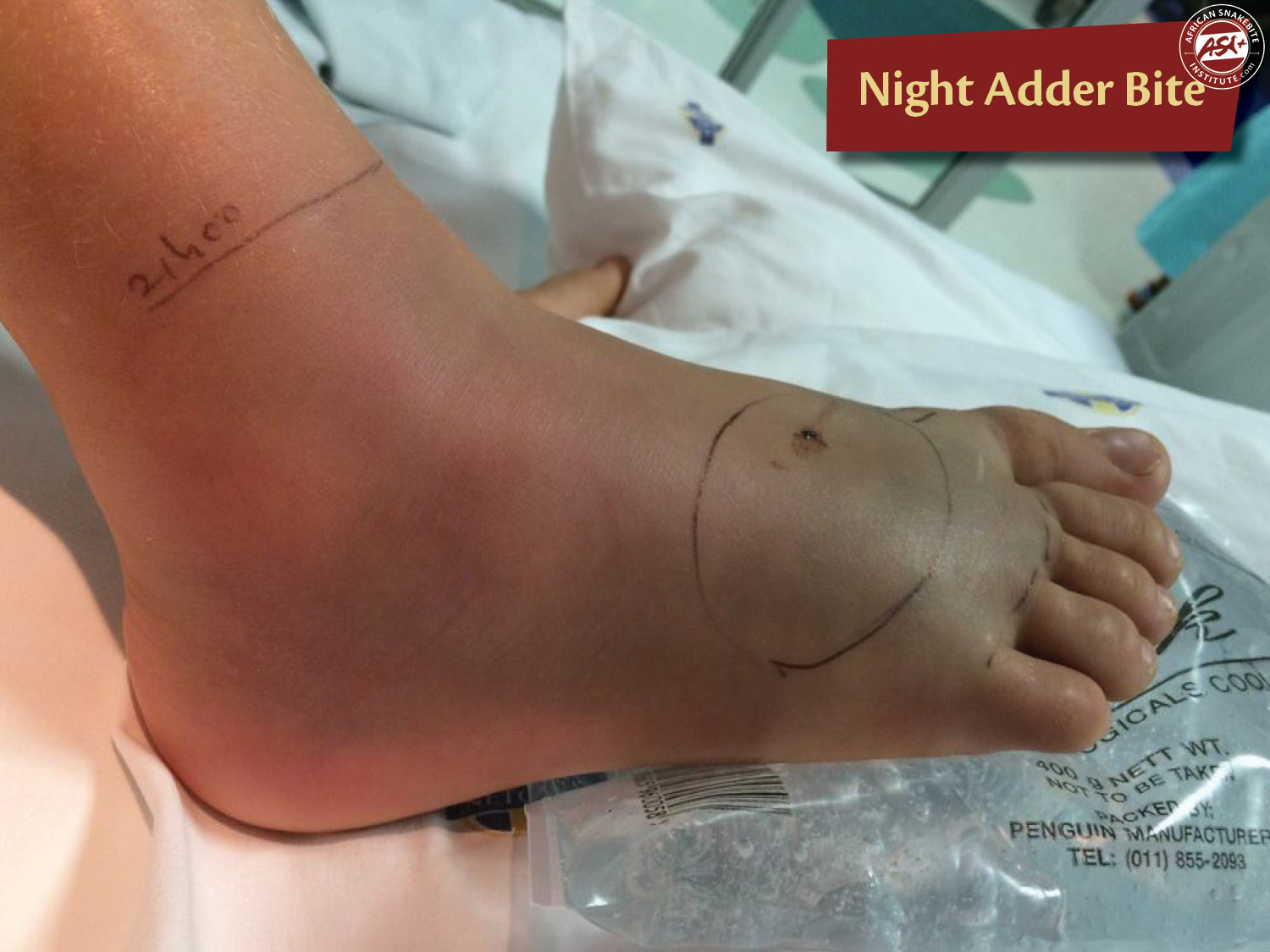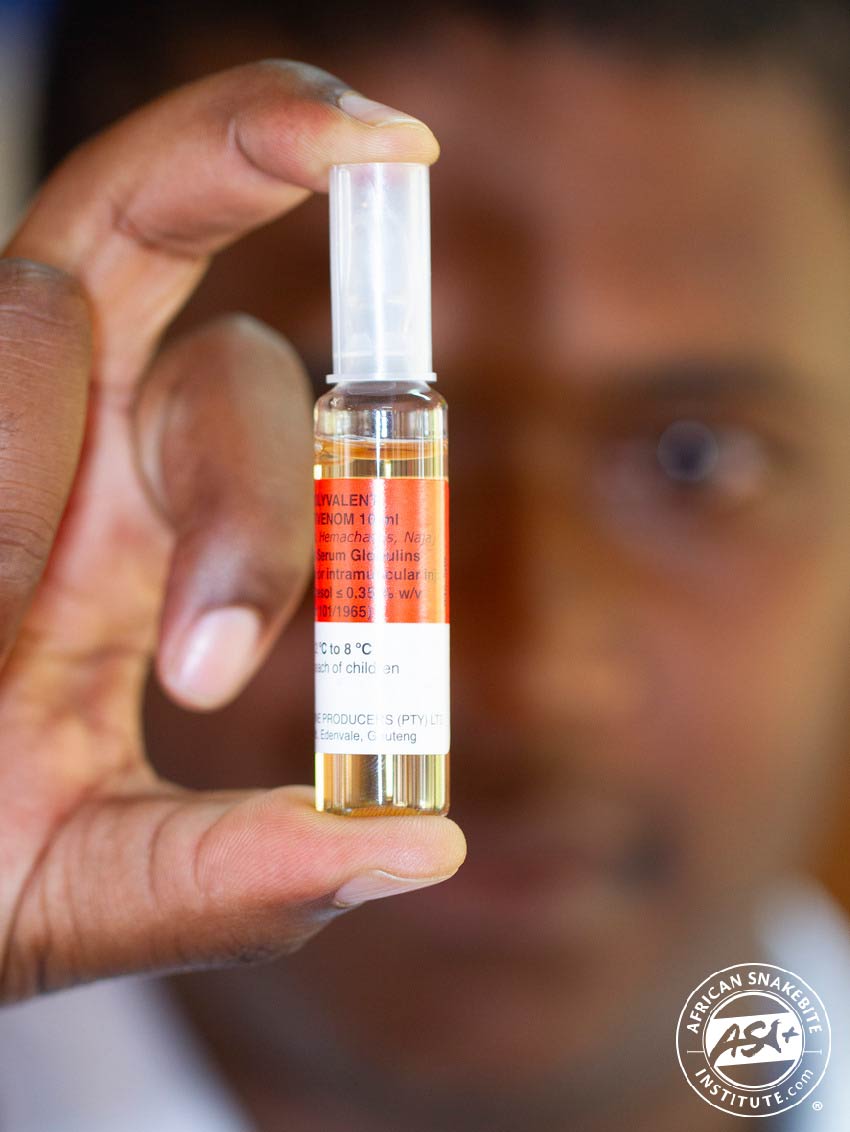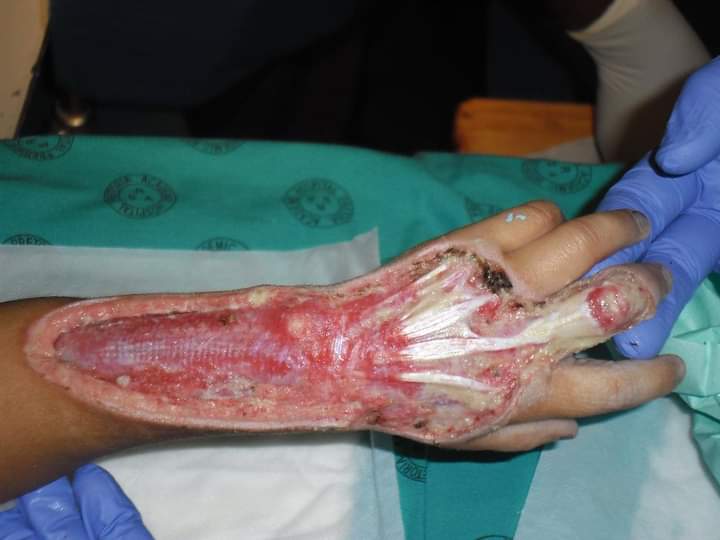|
The World Health Organization has declared snakebite a neglected tropical disease and has launched a campaign to reduce snakebite mortality worldwide by 50% within the next 8 years.
Over one million people are bitten by highly venomous snakes globally every year, resulting in over 100,000 fatalities. It is estimated that around 20,000 people die from snakebite in Africa every year, of which 10-12 deaths are reported in South Africa.
As we lack accurate data, the above figures are all estimations based on available information, but the real picture may be quite different. Actual snakebite fatalities could be far less or exponentially higher. We just do not know, and gathering such information is not easy. In South Africa we often hear of serious snakebites as well as fatal bites and this information may come from the likes of the Poison Information Center or hospitals in high-risk areas. However, we struggle to get information from small rural hospitals and clinics as well as hospitals in low-risk areas that deal with very few snakebites.
Another problem is that fatal snakebites in rural areas are not always reported, or such cases get lost. Victims die and are buried without anyone recording such fatalities.
|
|
|
| |
|
|
|
Back in stock!
ASI Budget Snake Resistant Gaiters with shin guard.
The outer shell is made from a heavy-duty nylon cordura fabric.
Insert panels are made from molded polypropylene panels, for maximum protection.
These gaiters include a 3-panel moulded boot cover to ensure foot protection at the ankle.
Two adjustable straps with buckles ensure a secure fit – one size fits all.
Tried and tested against bites from the Puff Adder, Cape Cobra, Snouted Cobra and Black Mamba with no penetration during testing.
R640.00 per pair
|
|
|
| Order here |
|
|
|
As for the number of snakebites in South Africa, and based on available information, I estimate that between 3,500 – 4,000 snakebite incidences occur annually. Around 800 of these victims are hospitalised with as many as 40% of them showing no symptoms or very minor symptoms that require no treatment. This may be because of bites from harmless or mildly venomous snakes, so-called dry bites from highly venomous snakes or perhaps not even a bite from a snake. Someone feels a thorn prick at night, sees a movement and suspects a snakebite.
|
 |
|
The majority of snakebites in southern Africa are inflicted by these four species.
|
|
|
|
As well over 90% of all snakebites in South Africa are from snakes with predominantly cytotoxic venom such as the Mozambique Spitting Cobra, Puff Adder, Common Night Adder and Bibron’s Stiletto Snake, time is of the essence and the sooner such victims are hospitalised, the less the subsequent tissue damage there is.
|
|
|
|
ASI First aid for Snakebite Kit
Great to keep at home base, camp, or even in the car to make sure you have the right equipment on hand to deal with a snakebite emergency.
The ASI First Aid Kit for Snakebite contains the following:
2 x Smart Pressure Bandages (For Black Mamba and Cape Cobra bites only)
1 x roll-up splint
1 x Pocket Resus Mask
1 x ASI Adult Resuscitator
200 ml sodium chloride for venom in the eyes
1 x emergency eyewash container, eye patch, safety glasses, examination gloves, scissors, emergency blanket and paracetamol.
And the ASI First Aid for Snakebite booklet
Comes packed in a 30 x 25 x 20 cm durable zip up bag.
Price R2295.00
|
|
|
| Order here |
|
|
|
In the case of Common Night Adder bites, tissue damage is rare and as there is no antivenom for these bites, victims are treated for pain, rehydrated and should rest for as long as it takes for the swelling to subside – usually a week or two. Treating such victims with anti-inflammatories and antibiotics often worsens the situation.
Bibron’s Stiletto Snake bites are mostly to fingers and thumbs as people try and grab these harmless-looking snakes behind the head. The venom of this snake is potently cytotoxic causing severe pain, swelling that may extend beyond the hand, and blistering. Because there is very little tissue in a finger or thumb, such bites often result in severe local tissue damage that may even result in the amputation of a digit or two. Polyvalent antivenom does not neutralize the venom of this snake and victims are treated symptomatically – rehydration and pain management. Early surgical intervention (within 5 or 6 days) is not advised and doctors will decide what course of action to follow after about seven days. While many victims recover well, others need debridement or, in some cases, amputation of a digit or two.
To date we have not had any fatalities from these two snakes but bites from large individuals on small children could be serious.
|
 |
|
Typical Night Adder bites result in swelling, discolouration and pain.
|
|
Serious Mozambique Spitting Cobra and Puff Adder bites, as well as bites from a variety of other snakes with partly cytotoxic venom (Rinkhals, Black Spitting Cobras, Forest Cobras and even Snouted Cobras) may result in severe tissue damage, even though these bites are all treated with polyvalent antivenom. The biggest problem is timing. In severe bites, victims need to be treated with polyvalent antivenom sooner rather than later - ideally within an hour or two (or even sooner) after a serious bite. Once the swelling progresses, the tissue is damaged and antivenom cannot reach that part of the body. Antivenom cannot reverse any tissue damage, and rather prevents or reduces any further damage. It is then a waiting game to assess the extent of tissue damage and what surgical intervention is required.
Not all hospitals stock antivenom and rushing around on a Friday night looking for sufficient antivenom for a serious Mozambique Spitting Cobra bite wastes valuable time. In recent months there has been a severe shortage of polyvalent antivenom and this has resulted in some fatal bites where victims could not receive the required treatment. This issue is still not fully resolved.
|
|
|
 |
|
Most serious snakebites require 10-15 vials of polyvalent antivenom.
|
|
A major aspect of serious snakebites that is rarely addressed is morbidity. Victims of severe cytotoxic snakebites often spend months in hospitals, are subjected to several sessions of surgery, skin grafts and even amputation. This is done at great cost to medical aids or state hospitals and a single complicated snakebite could cost well over one million Rand to treat. Consider the impact of a serious snakebite on a poor farmer that lives off the land and feeds a family of a dozen people. Losing a hand because of a snakebite could seriously impact the families survival.
|
 |
|
A nasty Mozambique Spitting Cobra bite requiring surgical intervention. Photograph - Charmaine Robbertse.
|
|
We have a long way to go when it comes to dealing with snakebite. We need better and more affordable antivenoms to treat all serious bites, we need more doctors trained up in proper snakebite treatment and we need antivenom in all of our hospitals or, at least, antivenom banks where antivenom is readily accessible in an emergency.
|
|
|
|
Africa's best-selling Snake Tong!
The JM150 Snake tongs are by far our most popular snake tong for both discerning corporate and private clients.
This tong is ideal for removing problem snakes, especially on mines, game farms and game lodges. The extra 50 cm (compared with the JM100) keeps the snake further away from the handler and is thus far safer.
Available in various colours. All JM Snake tongs come with a guarantee.
Price R1295.00 each
|
|
|
| Order here |
|
|
|
|
 |
|
World Snake Day was on July 16 - this is a day created to help raise awareness and spread education about snakes and the role they play in our ecosystems.
This is an important topic, and something we’re proud to do on a daily basis as ASI. Through our interactive website, our free ASI Snakes app (with over 200 000 users) various publications, public expos, our online and in-person courses and our huge social media following (780 000 people) - we’re able to reach more than a million people and it’s been amazing to see snake awareness and education grow over the years.
Thanks go out to all snake ambassadors, course delegates, group members and app sharers – you guys and girls make the difference! With your help we’re slowly dissolving the ignorance and myths surrounding snakes and spreading snake awareness and education far and wide.
|
|
|
|
As part of this year's World Snake Day campaign, we set up a fundraising initiative for the ASI Foundation Anitvenom Banks.
You can make a difference and help us fund antivenom banks with our
WORLD SNAKE DAY RAFFLE
1 ticket = R30 donation
(cheaper than a decent cappuccino)
...and stand a chance to win one of our popular online snake courses valued at R500 each!
How to enter:
1. Follow the link: https://www.africansnakebiteinstitute.com/asi-foundation/
2.Donate your chosen amount
(in multiples of R30) via our secure payment link below. (1 raffle entry = 1 ticket, the more you buy the better your chance of winning)
3. Enter your email address in the form.
That's it, as simple as that!
The raffle closes on Saturday the 23rd of July 2022.
Winners will be contacted directly.
|
|
|
| Enter here |
|
|
|
|
|
|